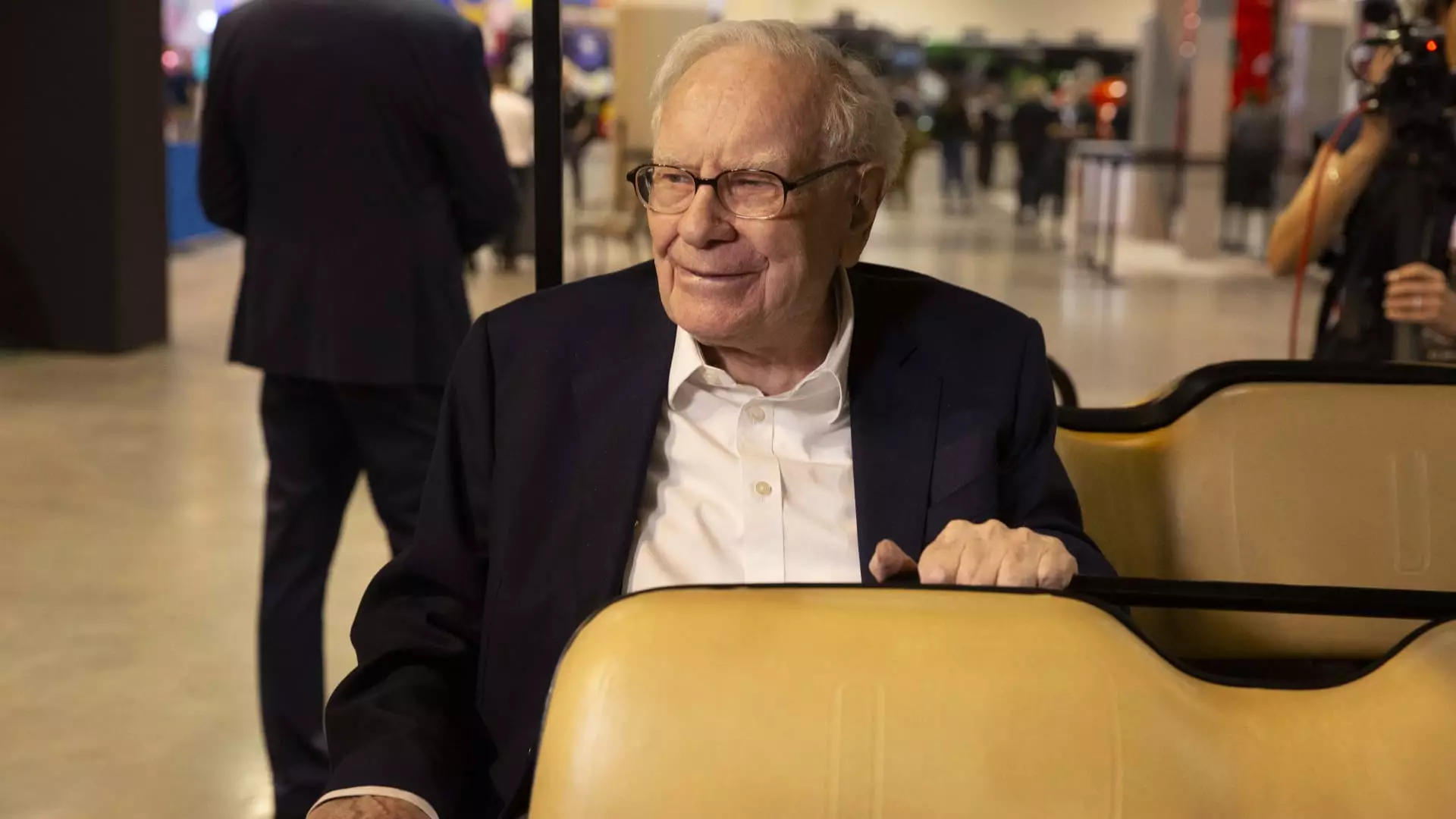Berkshire Hathaway, the multinational conglomerate led by Warren Buffett, recently showcased remarkable operating profits, prompting positive responses from investors. However, amid this optimistic financial outlook, a lingering uncertainty surrounds the company’s colossal cash reserves and future investment strategies. This article will delve into the intricacies of Berkshire Hathaway’s recent financial performance, the implications of Buffett’s decisions, and the perspectives of various stakeholders on the conglomerate’s strategic direction.
Berkshire Hathaway’s fourth-quarter operating profits experienced a significant spike, soaring 71% year-over-year to an impressive $14.5 billion. This surge was largely bolstered by the insurance segment, which saw profits from underwriting rise astonishingly by 302%, reaching $3.4 billion. Traditionally, operating earnings can provide shareholders with a sense of stability and growth, yet this sharp increase brings forth some essential considerations.
While the operating profit figures paint a rosy picture, they stand in stark contrast to Berkshire’s investment gains, which plummeted to $5.2 billion from a staggering $29.1 billion achieved during the same quarter the previous year. This discrepancy may prompt investors to question not only the sustainability of such operational profitability but also the long-term implications of diminishing investment returns, especially for a company renowned for its adept equity strategies.
One of the most striking revelations from Berkshire’s financial report is its ever-expanding cash reserves, escalating to a historic $334.2 billion, up from $325.2 billion at the end of the third quarter. Despite signs of robust operational profits, Buffett’s strategy of selling more equities than acquiring resulted in diminished portfolio growth. This decision raises eyebrows in the investment community, especially as the ongoing sale of significant positions in Apple and Bank of America continues.
Buffett’s rationale for holding an excessive amount of cash, as he conveyed in his annual letter, was a reluctance to invest at “extraordinary” price levels. He emphasized that a substantial portion of shareholder funds remains tied to equity investments, expressing confidence in his chosen successor, Greg Abek, to identify lucrative opportunities when they arise. Nonetheless, the apparent stagnation in actively pursuing new investments during a bull market cultivates unease among shareholders eager for aggressive growth strategies.
Despite the financial prowess displayed by Berkshire, shareholder sentiment remains a mixed bag. Some shareholders express frustration over the lack of share buybacks and aggressive investments, questioning whether the company’s current posture is prudent or overly cautious. Investors, like Bill Stone of Glenview Trust Company, urge patience, highlighting Berkshire’s strategic positioning to weather economic downturns and capitalize on anticipated crises.
This dichotomy in investor sentiment reinforces the notion that while Buffett’s conservative investment approach may be justifiable, it can also alienate those desiring immediate returns on their investments. For many, the allure of a company like Berkshire Hathaway lies in its transformative investment strategies, and the ongoing cash accumulation may be perceived as a missed opportunity.
Berkshire has weathered numerous market cycles, and its performance in 2024—boasting a 25.5% rally—places it in a favorable position compared to the S&P 500. In the current market environment, characterized by uncertainties and high valuations, the importance of Buffett’s investment philosophy cannot be overstated. His focus on long-term value creation, rather than short-term gains, has been a cornerstone of Berkshire’s philosophy.
As the markets evolve, the interplay between Berkshire’s vast cash reserves and its investment strategies will be pivotal. For investors, the key takeaway remains that Buffett’s historical foresight and conservative management style, while potentially frustrating in the short term, may ultimately yield opportunities conducive to long-term wealth growth.
The latest earnings report from Berkshire Hathaway underscores the company’s remarkable operational success, yet juxtaposes that success with a growing concern about investment strategies and cash management. As the financial landscape shifts, grasping the intricacies of Buffett’s approach and remaining patient in the face of uncertainty will be critical for shareholders looking to navigate the year ahead.

